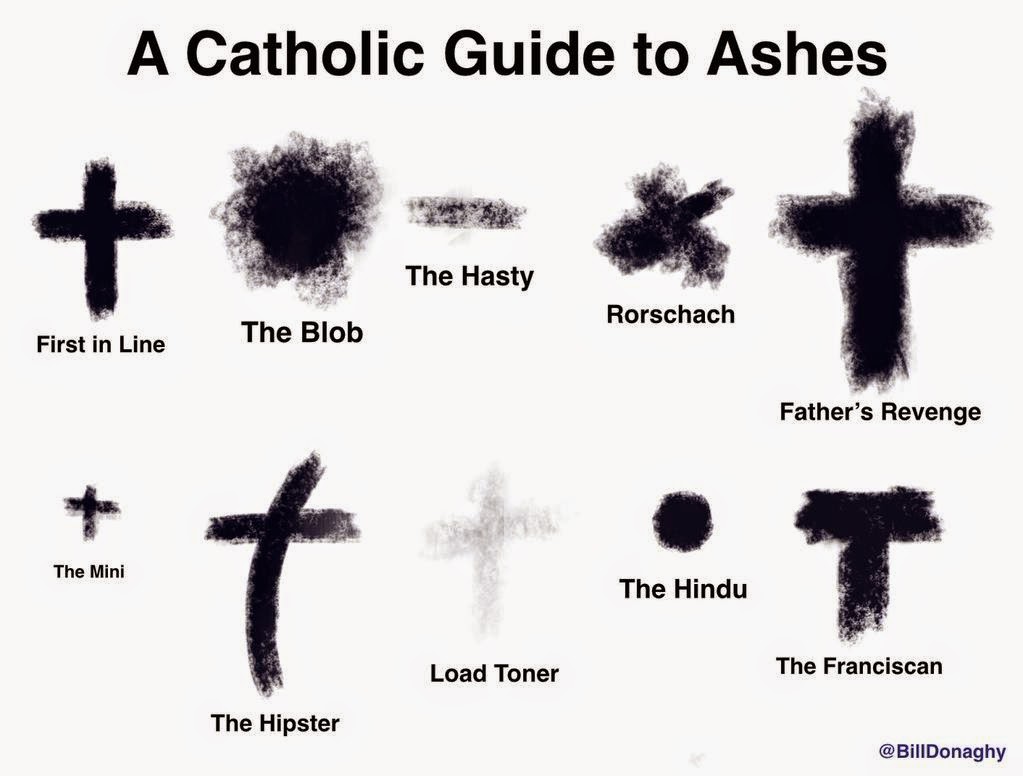
.jpg)
The Catholic prohibition on cremation, imposed in reaction to Enlightenment era materialism that promoted it as a statement against “the resurrection of the body,” was rescinded in the early 1960s when those having recourse to cremation seemed driven more by limited land availability than hardcore ideology. Yes, the Vatican recently reiterated that Catholics should bury and not scatter ashes, but I fear that will have as much of a following as practice “you-don’t-need-to-abstain-on-Friday-as-long-as-you-do- another-penitential act.” This downward convergence of views is such that Catholic cemeteries increasingly offer space for burials and urn storage. I say that because of the growing popularity of cremation among Catholics, whose funeral practices are increasingly indistinguishable from the larger public’s. But I feel compelled to say that because modernity is often confused about things that used to be quite clear.

But what we use on Ash Wednesday are not literally human ashes, which would be an affront to human dignity. So, the ashes of this Wednesday, culled from burned palm fronds, remind us symbolically of the paltry residue that’s left over inside a grave. Just as the graveside “you are dust” summarizes a lifetime of Ash Wednesdays, so the use of the burned palm branches connects to the past Lent and looks forward to what Lent is all about: Easter. Perhaps, in our Catholic tradition, we should call it “Dust Wednesday.” “Ash Wednesday” stuck because the ashes we use come from last Palm Sunday’s burned fronds. Lent begins by reinforcing the nexus between sin and death and, therefore, the need for repentance. (Catholics used to do something similar, employing the Ash Wednesday phrase - “remember man, that you are dust …” - but this ritual, which ought to sum up a believer’s lifetime of Ash Wednesdays, has been lost in the current Rite of Committal). There, among the punishments God doles out to the man who has sinned is painful labor to eke out his subsistence from a resistant earth, until he returns to the dust from which God made him (see Genesis 2:7) and whom he endowed with spiritual dignity he chose to forfeit.Įnglish-speaking Christians may also be familiar with the classic phrase from The Book of Common Prayer, “ashes to ashes, dust to dust.” It comes from a phrase in the Anglican Burial Service when, at the graveside, the officiant usually places a trowel of earth on the coffin with that phrase. The traditional formula for imposition of ashes alludes to Genesis 3:19. Ash Wednesday is supposed to remind people of their mortality: “Remember man, that you are dust, and to dust you shall return.”


 0 kommentar(er)
0 kommentar(er)
